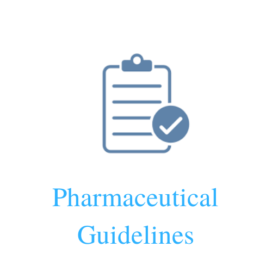Ensure the safety and efficacy of your pharmaceutical capsules with this step-by-step guide to GMP compliance for capsule manufacturing in India.

Introduction:
In the pharmaceutical industry, Good Manufacturing Practice (GMP) plays a pivotal role in safeguarding the safety and efficacy of medications. GMP regulations are designed to establish consistently high-quality standards for the manufacture of pharmaceutical products, including capsules.
This comprehensive guide is tailored specifically for pharmaceutical companies in India, providing a roadmap for effectively implementing GMP for capsule manufacturing. By adhering to these guidelines, companies can consistently produce high-quality, safe capsules that meet the stringent standards of patient care in India.
Key Steps for GMP Compliance:
1. Establishing a Robust GMP Quality Management System (QMS):
A robust QMS forms the cornerstone of GMP compliance. It encompasses all aspects of capsule manufacturing, from raw material procurement to product release, ensuring that quality is embedded throughout the entire process.
2. Designing and Constructing Sanitary-Minded Facilities:
GMP mandates that capsule manufacturing facilities meet stringent sanitary and environmental standards to safeguard the production of contaminant-free capsules. This includes ensuring adequate ventilation, lighting, and floor surfaces, as well as designated areas for raw material storage, capsule filling, and capsule labeling.
3. Adopting Detailed Written GMP Procedures:
Written GMP procedures serve as the guiding framework for every aspect of capsule manufacturing, ensuring consistency and adherence to GMP guidelines. These procedures should meticulously outline procedures for raw material handling, capsule cleaning and preparation, capsule filling, capsule sealing, capsule testing, and batch release.
4. Undertaking Rigorous In-Depth Quality Control Testing:
Thorough quality control testing is paramount to ensuring the safety and efficacy of capsules. This includes testing raw materials, in-process samples, and finished products to detect and eliminate potential impurities or inconsistencies.
5. Equipping Personnel with Comprehensive GMP Training:
GMP mandates that all personnel involved in capsule manufacturing receive comprehensive training on GMP principles and procedures. This training should cover a wide range of topics, including sanitation practices, equipment operation, quality control testing, and recordkeeping.
6. Implementing an Unwavering Traceability System:
A robust traceability system is essential for identifying and tracking capsules throughout the manufacturing process. This enables rapid identification of any potential quality defects or issues, enabling prompt corrective actions.
7. Maintaining Impeccable Recordkeeping:
Accurate and meticulous recordkeeping is crucial for demonstrating compliance with GMP. Records should document all manufacturing activities, including raw material specifications, process parameters, quality control test results, and batch release documentation.
8. Conducting Regular Internal GMP Audits:
Regular internal audits of GMP implementation are essential to identify areas for improvement and ensure ongoing compliance. These audits should be conducted by a team of qualified personnel who are independent of the production process.
9. Adhering to Regulatory Requirements with Rigor:
Pharmaceutical companies in India must adhere to the GMP guidelines set forth by the Central Drugs Standard Control Organization (CDSCO), India’s apex regulatory body for pharmaceuticals. This includes obtaining necessary licenses and permits, and submitting periodic GMP compliance reports.
10. Embracing Continuous Improvement as a Way of Life:
GMP implementation is not a one-time undertaking but an ongoing process that requires continuous improvement. Companies should regularly review their GMP systems and identify opportunities to enhance their effectiveness in ensuring product safety and quality.
Conclusion:
By following these comprehensive guidelines tailored to the Indian context, pharmaceutical companies in India can effectively implement GMP for capsule manufacturing, ensuring the consistent production of high-quality, safe capsules that meet the stringent standards of patient care in India.
Reference :-
- Central Drugs Standard Control Organization (CDSCO) Guidelines for Good Manufacturing Practices for Pharmaceuticals (Schedule M): This comprehensive set of guidelines provides detailed requirements for GMP compliance in all aspects of pharmaceutical manufacturing, including capsule manufacturing.
- World Health Organization (WHO) Guidelines on Good Manufacturing Practices for Pharmaceutical Products: Annex 1, Manufacture of Pharmaceutical Products
- International Conference on Harmonization (ICH) Guidance Q7A Good Manufacturing Practice for Active Pharmaceutical Ingredients
- United States Pharmacopeia (USP) General Chapter Pharmaceutical Dosage Forms: Capsules
- European Medicines Agency (EMA) Guideline for the Requirements of Pharmacopoeias with Regard to Good Manufacturing Practice (GMP)
